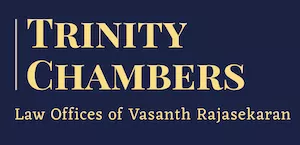Introduction
In a recent decision in M/s N.C. Construction v. Union of India1, the Calcutta High Court reaffirmed that a referral Court can decline an application under Section 11 of the Arbitration and Conciliation Act, 1996 ("Arbitration Act") if the claims sought to be arbitrated are ex-facie barred by limitation.
The decision reinforces the principle that no party may be permitted to resurrect stale claims that have long since lapsed. In this article, we navigate through the facts of the case and the findings rendered by the High Court.
Brief Facts
The dispute arose from a work order issued in 2006 under an agreement dated 31 December 2004. The petitioner claimed that it had completed the work and submitted its bill on 12 October 2007, which remained unpaid. The Junior Telecom Officer, BSNL, Diamond Harbour, issued a completion certification on the same date. Over the years, the petitioner sent multiple reminders demanding payment, the last of which was issued on 2 February 2024. Despite invoking the arbitration clause in some of these letters, the petitioner did not approach the High Court for the appointment of an arbitrator until 2025.
The respondent contended that the claims of the petitioner were ex facie time-barred, citing that the limitation period for filing an application under Section 11(6) of the Arbitration Act is three years from the date when the right to apply accrued. Relying on Arif Azim Company Limited v. Aptech Limited [(2024) 5 SCC 313], the respondent argued that the limitation period began when the petitioner first invoked arbitration but failed to act upon it within the prescribed period. The respondent further highlighted that no payment had been made, nor had any acknowledgment of debt been issued within the statutory period, thereby extinguishing the petitioner's right to seek appointment of arbitrator(s).
The petitioner, however, relied on Aslam Ismail Khan Deshmukh v. Asap Fluids Pvt. Ltd. [(2025) 1 SCC 502], arguing that the referral Court should not decide issues of limitation at the Section 11 stage. The petitioner asserted that as long as a valid arbitration agreement existed, the issue of limitation should be left to the arbitral tribunal. The petitioner submitted that the decision in Aslam Ismail (supra) clarified and overruled the position taken in Arif Azim (supra) regarding the Court's power to refuse arbitration based on limitation.
Findings of the High Court
The High Court conducted a detailed analysis of the issue of limitation and concluded that the petitioner's claims were manifestly time-barred. The High Court observed that merely sending letters between 2009 and 2024 did not extend the limitation period, as there was no evidence of any acknowledgment of liability by the respondent. Referring to Vidya Drolia v. Durga Trading Corporation [(2021) 2 SCC 1], the High Court reaffirmed that referral Courts must prevent parties from being forced into arbitration where the claims are clearly barred by limitation.
The High Court then referred to the decision in SBI General Insurance Co. Ltd. v. Krish Spinning [2024 SCC Online SC 1754], which held that referral Courts must conduct a prima facie examination to screen out non-arbitrable or dead claims. Further reliance was placed on NTPC Ltd. v. SPML Infra Ltd. [(2023) 9 SCC 385], where it was emphasised that Courts must protect parties from being subjected to lengthy arbitration proceedings when the claims are demonstrably time-barred. The High Court also referred to BSNL v. Nortel Networks (India) Pvt. Ltd. [(2021) 5 SCC 738], which ruled that referral Courts have the authority to reject arbitration applications when it is evident that the claims are ex facie deadwood.
The High Court further clarified that while the general rule under Vidya Drolia (supra) is to refer disputes to arbitration when there is an arbitration agreement, an exception applies where it is manifestly clear that the claim is barred by limitation. The High Court reiterated that the statutory period for invoking arbitration had expired years ago, and there was no valid reason to revive the claim through a belated application. The High Court also noted that in previous litigation involving the same parties, a coordinate bench had reached a similar conclusion, reinforcing the view that arbitration cannot be used as a strategy to bypass statutory limitation laws. Accordingly, the petitioner's application came to be dismissed.
Comment
The judgment of the High Court aligns with the growing judicial emphasis on ensuring that arbitration remains an efficient dispute resolution mechanism and is not misused to revive stale claims. By dismissing the application, the High Court has reinforced the principle that limitation laws must be strictly applied, even at the stage of deciding an application under Section 11 of the Arbitration Act.
The High Court's approach is consistent with the Supreme Court's stance in Vidya Drolia (supra) and subsequent cases, reaffirming that arbitration should not be used as a last-ditch effort to revive claims that have long since lapsed. The judgment serves as a crucial reminder that parties must act diligently and within prescribed timelines if they wish to seek recourse through arbitration.
Footnotes
1 M/s N.C. Construction v. Union of India, AP-COM/144/2025.
The content of this article is intended to provide a general guide to the subject matter. Specialist advice should be sought about your specific circumstances.



